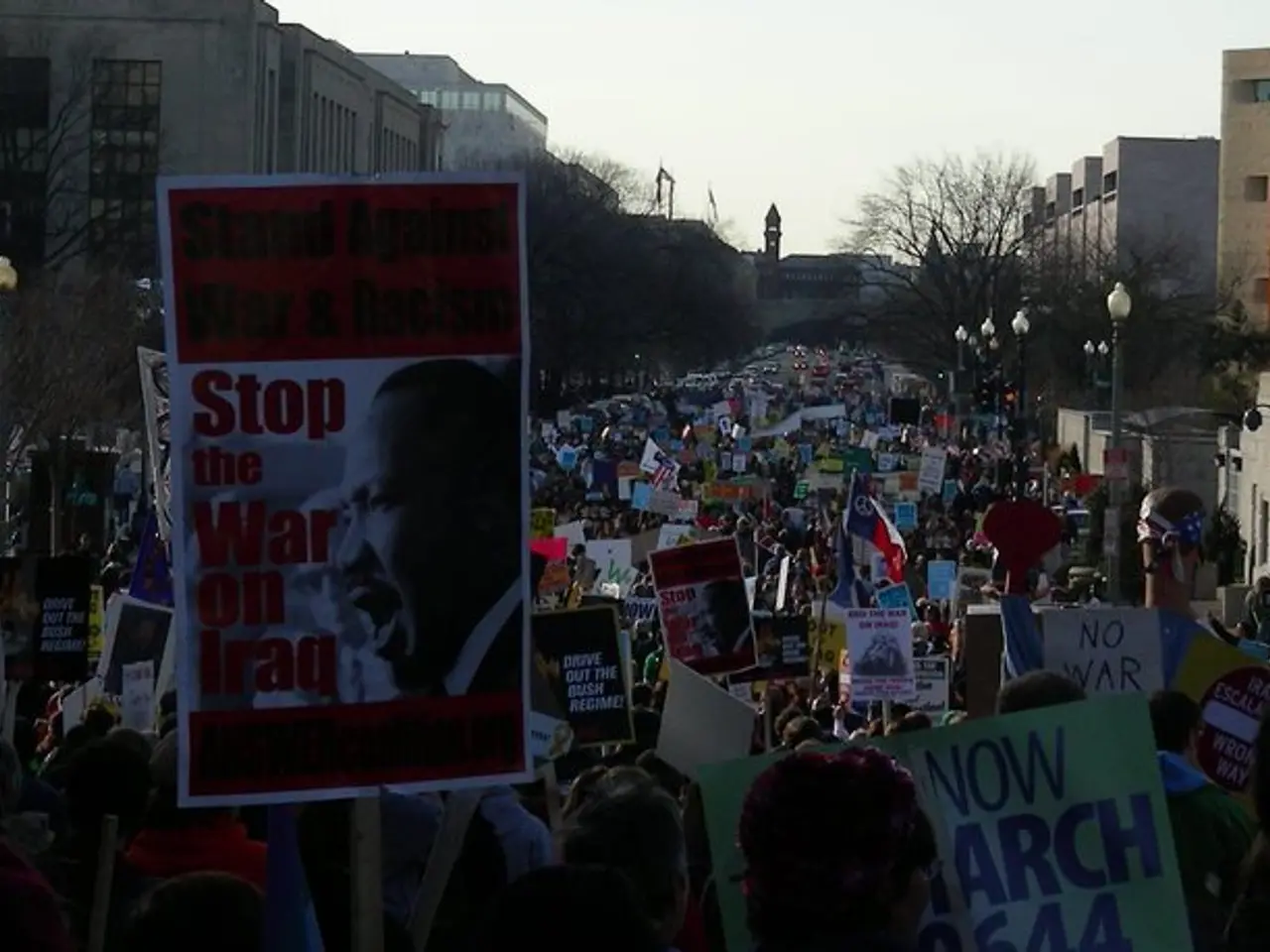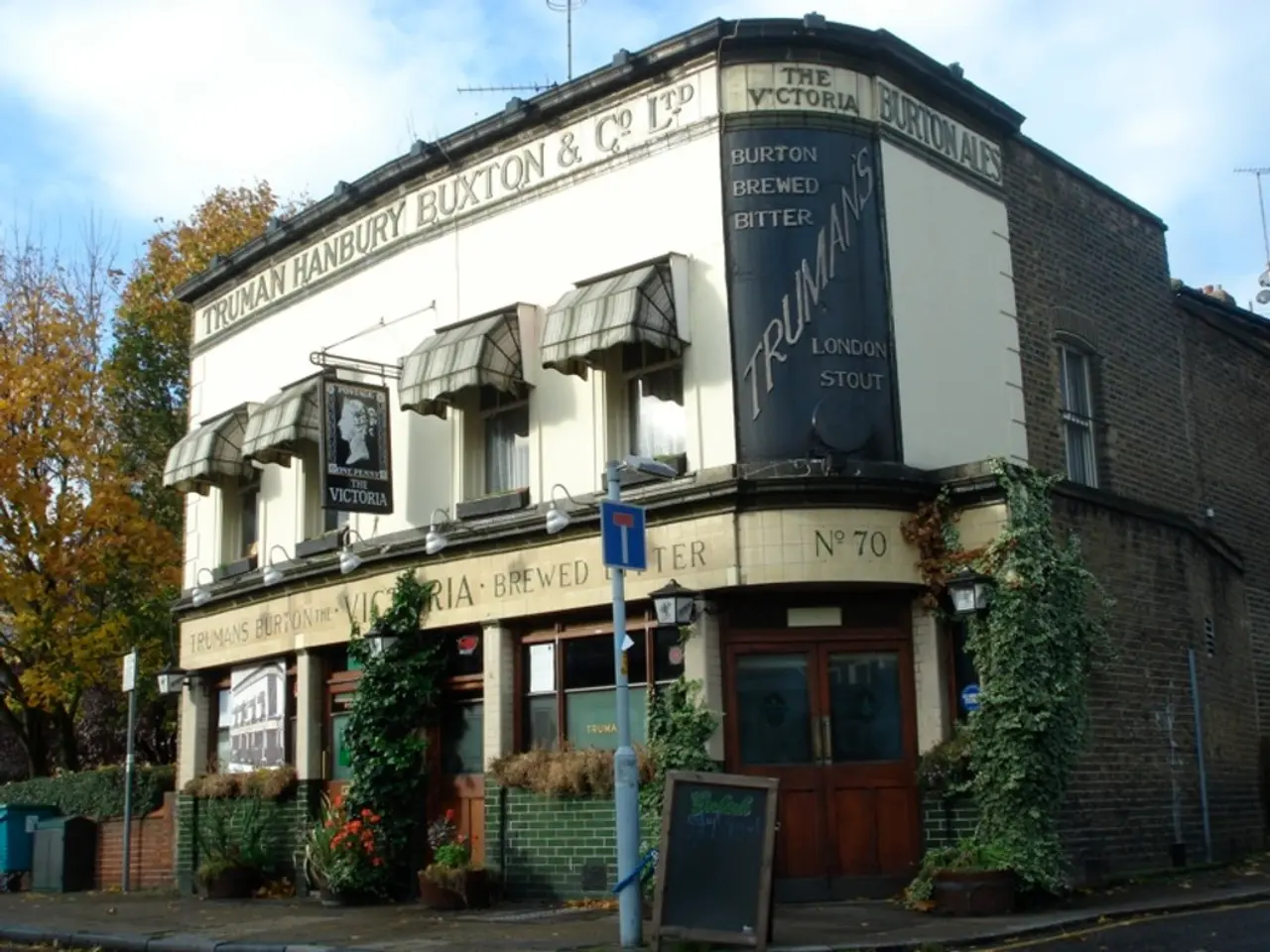A Call to Actions Post-Deadly Police Shooting in Oldenburg: "Lorenz was no One-Off Incident"
Unprecedented Concerns Spark Calls for Systemic Reforms Following Lorenz's Situation - "Lorenz's situation wasn't unique, demanding reforms"
Let's dive into the pressing issue of police reforms sparked by the tragic police shooting in Oldenburg, Germany. The Green Youth of Lower Saxony is leading the charge, with calls for mandatory body cameras and identification numbers on police uniforms.
The recent unrest in Oldenburg saw hundreds take to the streets, demanding justice for the victim, Lorenz, and advocating for a shift in police mentality.
Green Youth's demands are fueled by concerns surrounding the ongoing probes against the officer involved in the shooting. They question why a neighboring station in Delmenhorst should have jurisdiction over Oldenburg's police force. They also argue for an independent investigation unit and police ombudsman to ensure impartial investigations.
The initiative "Justice for Lorenz" points to systemic problems within the police force. They argue that Lorenz's death was not an isolated incident, as police violence disproportionately affects minorities such as blacks, refugees, the mentally ill, and economically disadvantaged individuals. Similar incidents often go unpunished, and crucial questions about trust and police reforms remain unanswered.
500 furious Oldenburg citizens expressed their outrage on a peaceful Sunday demonstration, chanting slogans such as "Lorenz, that was murder! Resistance everywhere” and “Resistance everywhere - Lorenz was no isolated case". Similar protests occurred in numerous German cities like Berlin, Hamburg, Kiel, Leipzig, and Düsseldorf, among others.
However, police unions in Lower Saxony remain skeptical of the need for reforms. Lower Saxony's Police Union (DPolG) argues that idenitification requirements are unnecessary and mandatory body camera usage poses legal challenges. They also reject an independent investigation unit, citing separation of powers concerns.
The Police Union (GdP) in Lower Saxony shares the skepticism, regarding individual identification as symbolic politics that fosters unnecessary bureaucracy. They contend that, in covert operations, anonymized identifications are already in use. The GdP acknowledges the need for body cameras but stresses the importance of addressing legal and privacy issues, such as recordings within private residences.
The Lower Saxony Ministry of the Interior raises political and legal barriers to some demands, including identity requirements, body camera regulations, and the establishment of an independent investigation unit. A police ombudsman is a matter for the state parliament to decide.
In the absence of detailed information regarding the specific proposals and stances from Lower Saxony authorities, police unions, or civil society groups, it is challenging to provide a precise answer. Keep an eye on German news sources for the latest developments on police reforms in Lower Saxony following the tragic incident in Oldenburg.
Works Cited:- KnowledgeGraph Data (Offline)- List of Cities in Germany (Offline)- German Police Unions (Online)- Lower Saxony Ministry of the Interior (Online, as of March 2023)
- The community is advocating for a comprehensive review of the employment policy within the police force, as the tragedy in Oldenburg underscores the urgent need for reforms, particularly regarding the implementation of identification numbers on police uniforms, the establishment of an independent investigation unit, and a police ombudsman.
- The ongoing debates on police reforms in Lower Saxony, fueled by the Oldenburg incident, are deeply rooted in the broader discourse of politics, general-news, and crime-and-justice, as various groups within the society voice their opinions and demand change, leading to widespread protests in cities across Germany.








